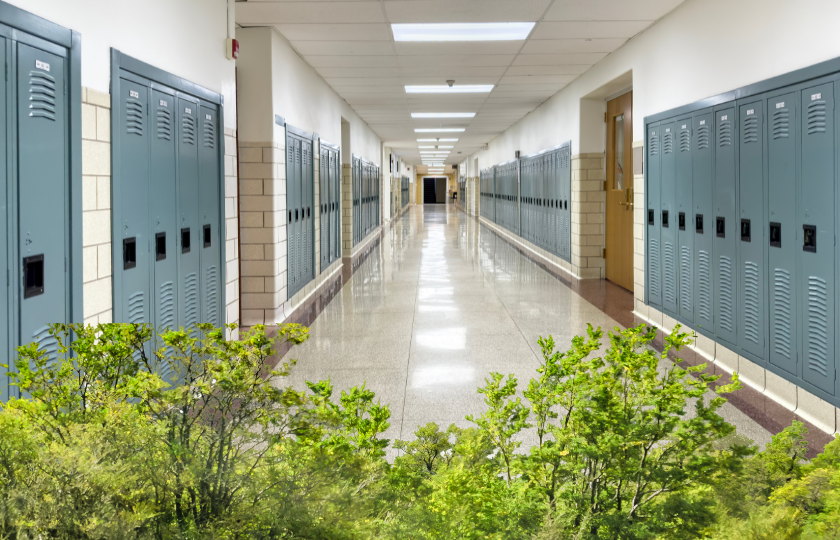Environmental studies have become increasingly necessary in modern times due to the looming threats of climate change and ecological degradation.
Fostering a generation adept at understanding and mitigating these issues is paramount. The greening of education is not just a trend but an evolution towards a more aware and responsible society.
This article explores how schools can incorporate environmental studies into their frameworks to educate students for a sustainable future.
Strengthening foundation through curriculum integration
Science curriculum
Environmental studies can be extensively interwoven into the science curriculum. Here, students delve into the dynamics of the Earth, climate patterns, and the myriad species that inhabit our planet.
Environmental laboratories
Modern educational institutions are increasingly establishing environmental laboratories. These labs are equipped to conduct experiments and research activities that impart a hands-on understanding of various ecological processes, pollution dynamics, and conservation strategies.
Case studies and field trips
Educational field trips to botanical gardens, wildlife sanctuaries, and renewable energy plants provide students invaluable experiences. Students can visualise and comprehend the theoretical knowledge imparted in classrooms through these outings.
Mathematics curriculum
Environmental studies find a place in the mathematics curriculum by applying numerical data analysis to understand ecological patterns and trends. Complex environmental phenomena can be analysed using mathematical models, fostering analytical thinking in students.
Sustainable architecture projects
Schools foster creativity and environmental consciousness by involving students in sustainable architecture projects. Here, students use mathematical concepts to design energy-efficient buildings and structures, nurturing their skills while promoting eco-friendliness.
Development and introduction of specialised environmental Courses
Sustainability and conservation
Specialised courses that delve deeply into various strategies and technologies that can help sustain natural resources for future generations are essential. Topics such as water conservation, sustainable agriculture, and waste management can be covered here.
Community-based projects
In these projects, students engage with local communities to implement sustainability and conservation projects, providing them with practical experience and fostering a community-driven approach to environmental conservation.
Renewable energy courses
In these courses, students explore the untapped potential of renewable energy sources such as solar, wind, and hydroelectric power. These courses foster innovation and encourage students to develop novel solutions to harness energy sustainably.
Internship programs
Schools collaborate with industries and organisations specialising in renewable energy, offering students internship opportunities to gain real-world experience and understand the dynamics of the renewable energy sector.
Achieving the highest quality education is essential for a student aspiring to join one of these programs. Hence, if you find yourself pressed for time or low on energy, considering the assistance of a writing service for your studies might be beneficial. Check out the 99papers reviews 2023 at ScamFighter to accurately assess the trustworthiness of various writing services.
Promoting environmental awareness through extracurricular initiatives
School gardens
School gardens serve as a learning platform where students can grasp concepts of botany, soil science, and sustainable agriculture practices. These gardens become a hub for various activities, promoting environmental awareness and responsibility.
Workshops and seminars
Schools are increasingly organising workshops and seminars to enhance the knowledge base. These events serve as platforms where experts from various fields, including social networks and their impact on student life, share their insights and experiences with the students. These seminars often encompass in-depth discussions on the nuances of environmental issues, as well as the pervasive influence of social networks on students’ daily lives and learning processes.
Recycling programs
Schools are nurturing a culture of resource efficiency and waste reduction by initiating recycling programs. Students learn the nuances of waste segregation and the importance of recycling in conserving resources.
Collaboration with environmental NGOs
Schools are fostering collaborations with environmental NGOs to organise community awareness programs and clean-up drives, encouraging students to participate actively in community welfare and environmental conservation initiatives.
Collaborative projects and community engagement
Collaborative environmental projects entail efforts where students develop viable solutions for local environmental issues. It fosters teamwork, problem-solving skills, and a hands-on approach to environmental conservation. But is 99papers a good service? Well, you should find a better variant if you want to use such a service.
Conclusion
Incorporating environmental studies into the school curricula is a crucial step towards nurturing a generation that is informed, responsible, and proactive in safeguarding the environment. Through comprehensive curricula, extracurricular initiatives, and community engagement, schools can pave the way for a greener future.
As this movement gains momentum, it is expected that the education sector will witness further innovations and expansions in environmental education programs. This will help foster a society that is united in its endeavours to protect the environment for future generations.



